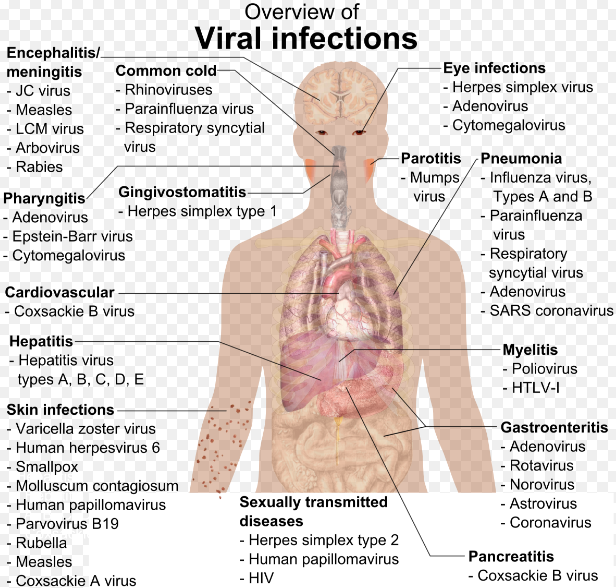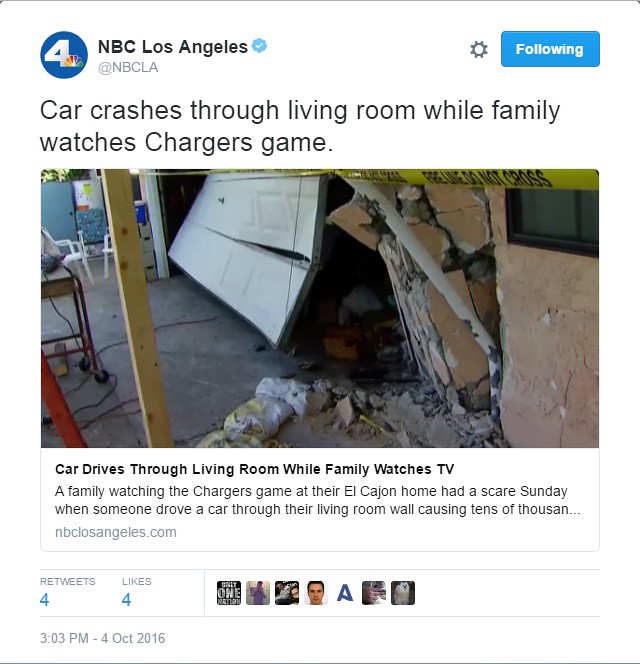Source: Wikipedia
We are inundated with a variety of news from a large amount of sources everyday. How do we make use of such information? How do we verify the deluge of information? In keeping with the tradition of educating the public on how scientists view various events portrayed in the media along with life in general (i.e. how do scientists think), a new piece of useful information has surfaced for readers to mull over. Scientists compare the misinformation in the news cycle to a viral infection.
In a past issue (December of 2017) of 'Science' magazine the following "letters" were sent into the Journal. The "letters" section is composed of chosen comments sent in by readers regarding earlier commentary/reporting from the science community which was published in an earlier issue. In the particular issue mentioned in the comments section -- there were a couple articles about the circulation of 'misinformation' in the mainstream news. The scientists drew parallels to the inoculation against an infection in biology:
The unprecedented spread of misinformation threatens citizens' ability to form evidence-based opinions on issues of societal importance, including public health, climate change, and national security. In his Editorial “Nip misinformation in the bud” (27 October, p. 427), R. Weiss argues that fact checking after misinformation has spread is often ineffective. Decades of research in cognitive science (1) have buttressed this concern by establishing the robust “continued influence effect”: Post-publication retractions and corrections often fail to eliminate the influence of misinformation. In some cases, they reinforce falsehoods simply by repeating them. The more exposure people have to a falsehood, the more truth-value they ascribe to it (2). The networked nature of online media enables misinformation to spread rapidly, much like a viral contagion (3). Accordingly, Weiss calls for a solution in which scientific facts reach the public before misinformation has a chance to spread and take hold.A growing body of research suggests that this may be possible, but it must be done preemptively. This process of “inoculation” adheres to a biological analogy: Just as injections containing a weakened strain of a virus trigger antibodies in the immune system to help confer resistance against future infection, the same can be achieved with information. Recent studies find that misinformation can be used against itself: By preemptively warning people against misleading tactics and by exposing people to a weakened version of the misinformation, cognitive resistance can be conferred against a range of falsehoods in diverse domains such as climate change (4, 5), public health (6), and emerging technologies (7). In the battle against misinformation, it is better to prevent than cure. The benefit of inoculation is that it can spread, too, online and through word-of-mouth (8). News outlets and the public can help inoculate each other to achieve societal immunity against misinformation.
The concept of preemptively warning people will work in theory. In fact, depending on the culture from which the person is from, preemptive action might work more effectively. Different countries have different models of regulatory procedures - for instance - which make such actions work in much different ways.
Here in the United States, the regulatory system appears to be at the moment more of a 'reactionary' system rather than a 'proactive' system. Which means that preemptive measures do not necessarily work very effectively. That is, of course, not to say that in our country every resident believes this to be true. There will be a sizable percentage on which preemptive knowledge might work quite well on informing. Although, over the range of the entire population, this kind of warning appears not to work as well as in other countries. Why? I have no idea at the moment.
As an example, take the recent attempt by the White House (and government agencies) to cover up a health report on the potential dangers of the class of chemicals known as perfuorinated chemicals. Recently, I wrote a blog post on the cover up. Then I followed the initial blog post up with an update to the initial introduction of terrible news. On top of the breaking news, during a supposed conference held to discuss solutions, the Environmental Protection Agency (EPA) staff attempted to throw journalists out of the conference. The agency's actions were an obvious attempt at covering up important news.
The terrible aspect of the news is that there are inherent dangers associated with the class of chemicals -- which are well known. This is a blatant example of a reactionary system. Why not put in place measures to replace this class of compounds with another class of chemicals which are less harsh on humans along with the environment? Another related 'reactionary' measure instituted in the United States is the Chemical Safety Board. The Chemical Safety Board is charged with investigating the aftermaths of tragedies (chemical hazardous spills, fires, accidents, etc.). Why not have a 'proactive' system in place? Currently, the fate of the Chemical Safety Board is in jeopardy -- read about that here.
The regulatory system in other countries -- say Britain for example -- is built on the 'preemptive' system. Instead of 'reacting' to a given tragedy, the British will put in place laws and regulation -- voted on by parliament - which are 'proactive' in nature rather than 'reactive'. Therefore, a 'preemptive' strike would work quite well over in that part of the world. Why there is such a large difference in different parts of the world is beyond my understanding at this time. If you (the reader) has any inputs (ideas) on this difference, please feel free to contribute in the comments section below.
Conclusion...
The United States is made up of a regulatory system which is 'reactive' in nature rather than 'proactive'. I would love to see the system change in the near future. How to change the system exactly I do not have the solid idea? Although, any change in the United States definitely has to build from the ground up through voting/speaking out to our respective political representatives who make/create law/regulations on our behalf. Additionally, a better informed society is willing to take a risk and become 'proactive'. That is not to say that we are a nation of 'dummies'. I believe that each of us could educate ourselves on a range of matters which in turn would create a better country - that might resemble a proactive rather than a reactive system.
Of course, in order to do so takes time and effort on each of our parts. What have you done to make the world a better place? What steps are you taking to help inoculate the public against 'fake news'? Rather than spend your time upset, take action to reduce the spread of fake news. Here on this site, I try to bring to light news about issues in hope of communicating the importance of understanding the issue. At least to provide a platform from which the reader (you) can further investigate the matter in greater depth. The path is yours to pursue to educate yourself and others. Inoculate yourself by educating yourself.
Related Blog Posts:
Chemical Safety Board's Future Uncertain as Hurricane Season Approaches
How Dangerous Are Cigarettes?
Thoughts: What Does National Institute of Health Director Francis Collins get asked in front of Congress?
Update: EPA Throws Journalists Out Of PFAS Conference - Why?
Update: Congress asks Federal Agencies about Dangerous Chemicals -- PFOA and PFOS
Congress Asks Defense Department and Environmental Protection Agency about Dangerous Chemicals

